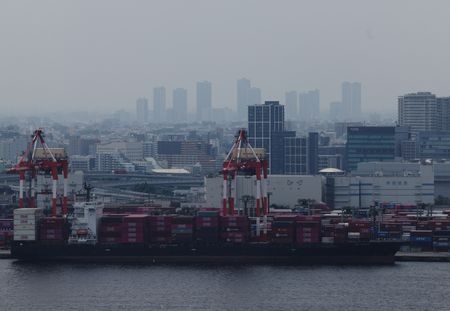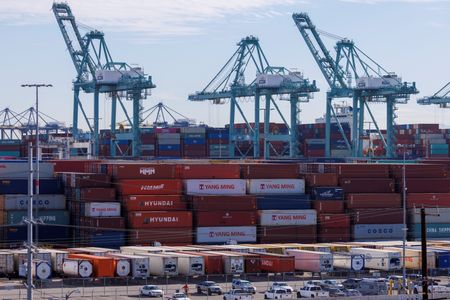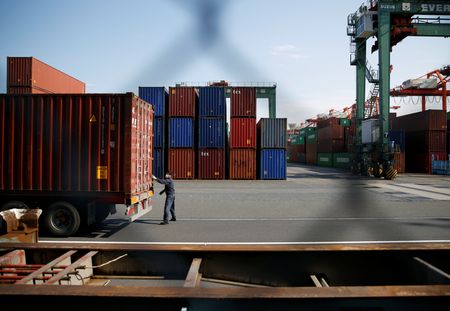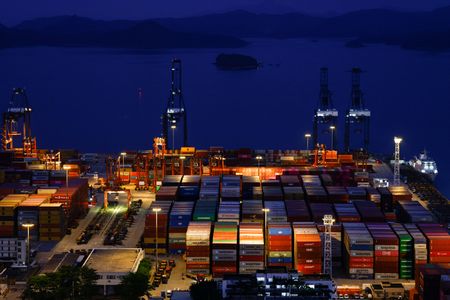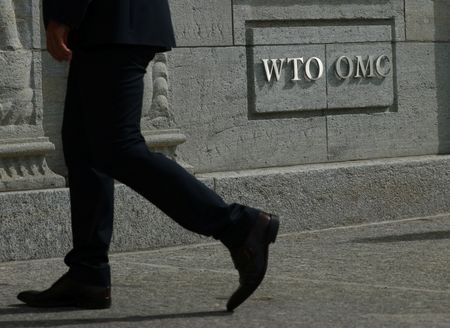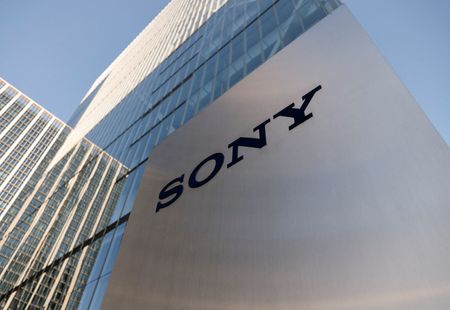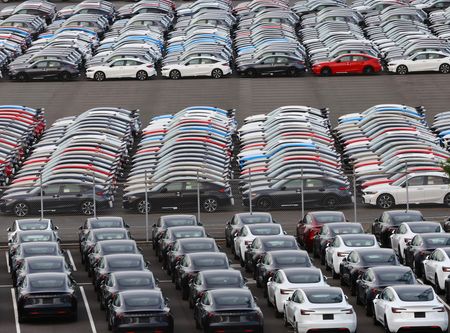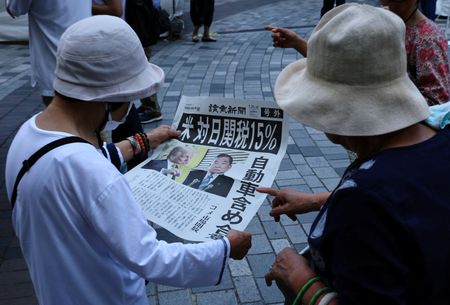(Reuters) -Businesses making everything from chips to steel reported downbeat results on Wednesday, with U.S. President Donald Trump’s trade war inflicting damage even as Japan’s deal lifted stocks and hopes that Europe can clinch a similar agreement.
Asian and European stock markets rallied as investors cheered a trade agreement between the United States and Japan, which lowers tariffs on auto imports and spares Tokyo punishing new levies on other goods. The news stirred hopes for a deal with the European Union ahead of the August 1 deadline set by the Trump administration. [MKTS/GLOB]
But results from Texas Instruments and steelmaker SSAB showed how chaotic U.S. trade policy has already hurt profits, adding to costs, upending supply chains and weighing on consumer confidence.
Texas Instruments’ quarterly earnings report pointed to weaker-than-expected demand for its analogue chips from some customers and underscored tariff-related uncertainty.
Chipmakers such as Texas Instruments are not yet directly facing Trump’s elevated tariffs, but the cost of chip-making tools has risen, and some of their end customers have pared back spending.
Late on Tuesday, Dutch computer chip equipment maker ASM International warned that order intake from chipmakers had been “lumpy” in the second quarter. Its shares fell 8.5% on Wednesday.
“Tariffs are hitting home,” said Neil Wilson, investment strategist at Saxo Markets.
Investors across the world are bracing for a slew of earnings this week that they hope will provide a window into how companies are navigating a torrent of challenges – from tariffs and regulatory changes to currency fluctuations, fickle consumer spending, higher prices, global conflicts and volatile oil prices.
As the second-quarter earnings season progresses, companies have reported a combined loss of $6.6 billion to $7.8 billion between July 16 and 22 for the full year, with the automotive, aerospace and pharmaceutical sectors being hurt the most by the tariffs.
General Motors accounted for a big chunk as it reiterated on Tuesday its expectation of a $4 billion to $5 billion hit from tariffs for 2025.
Late on Tuesday, Finland’s Nokia blamed tariff headwinds and the weaker U.S. dollar as it lowered its guidance for 2025.
For Swedish steelmaker SSAB, the biggest issue is that tariffs are causing more shipments of cheap steel to be redirected to Europe, CEO Johnny Sjostrom told Reuters on Wednesday.
“The turbulence of tariffs and trade barriers resulted in increased uncertainty,” he said in a statement, with the largest impact seen in the weakening European steel market.
EASING FEARS
All eyes are on Washington as governments scramble to close trade deals ahead of next week’s deadline that the White House has repeatedly pushed back under pressure from markets and intense lobbying by industry.
While the Japan deal has eased investor worries, the threat of higher tariffs on other large economies remains, including the European Union, Canada and Brazil. Trump has also threatened higher sectoral tariffs on pharmaceuticals, chips and copper.
“So this is far from the end,” said Deutsche Bank analysts following the Japan deal.
Some of the biggest companies to report earnings this week include Tesla, Google parent Alphabet, Nestle, LVMH, Nvidia supplier SK Hynix, Indian IT company Infosys and South Korea’s Hyundai Motor.
An EU-China summit on Thursday will also test European resolve and unity as the bloc faces intense trade pressure from both Beijing and the United States, while U.S. Treasury Secretary Scott Bessent meets Chinese officials in Sweden next week.
(Reporting by Reuters newsroomWriting by Anne Marie Roantree in Hong Kong and Josephine Mason in London; Editing by Kirsten Donovan)

